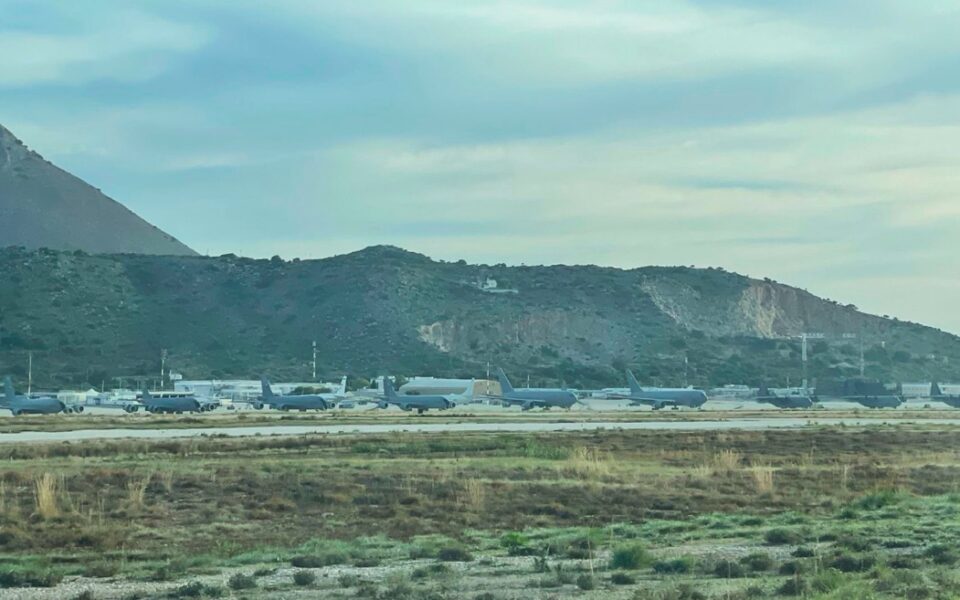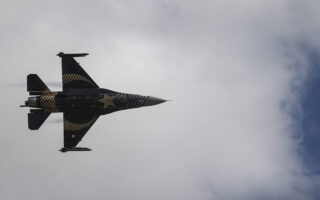Souda base key to US contingency plans
Military transport aircraft have arrived in case Americans are evacuated from Israel, Lebanon

The readiness to activate contingency plans for the evacuation of US nationals from Israel and Lebanon is the primary reason that a large number of US military transport aircraft have been transferred to Crete Air Base at Souda Bay in recent days.
A similar role, albeit significantly limited, will be played by the 112 Combat Wing in Elefsina. Aircraft that have landed in recent days include large C-17 transport aircraft, C-130 special operations aircraft, KC-135 flying tankers, P-8 Poseidon naval operations aircraft and electronic warfare aircraft. The aircraft have landed in Greece from various bases in Europe (Italy, Germany, UK) and their main purpose is to be on standby in case the plan to remove some of the estimated 600,000 American citizens living in Israel and Lebanon is activated.
The plan came to light via a Washington Post report, but it appears that the objective of the US presence in the region is not exclusively linked to the possible evacuation of citizens from the countries of the Eastern Mediterranean.
The significant increase in America’s air power presence in Greece is linked to existing provisions under the Mutual Defense Cooperation Agreement (MDCA), whereby the US uses some bases as it sees fit and the requests for temporary parking of C-130s at Elefsina Air Base.
Things are different at the Souda air base, where a substantial portion of the airfield has virtually been given over to the sole use of the US Air Force. The presence of several US Navy oil tankers in the Eastern Mediterranean, as well as the stationing of flying tankers at Crete Air Base, indicates the planning of prolonged and combined air operations in anticipation of the arrival of the second US aircraft carrier in the region, as well as the Task Force’s accompanying destroyers, cruisers and submarines.
The increased confidence shown by Washington in Athens coincides with the US effort not to use the very important bases it has in Turkey (such as Incirlik), which is even closer to the potential theater of operations in Israel, Lebanon and Syria.
The use of bases in Greece, but also in states on the Arab periphery of the region where the crisis is unfolding (Saudi Arabia, Kuwait, Jordan, Iraq, the United Arab Emirates, and Qatar) is seen by some analysts as evidence of a long-standing lack of trust in US-Turkish relations, despite the State Department’s avoidance of hints against Ankara.





